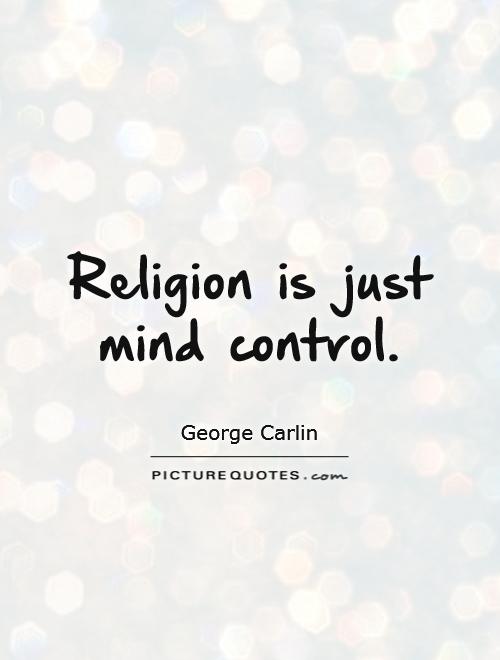Religion is just mind control

Religion is just mind control
The statement that "religion is just mind control" is a controversial and complex topic that has been debated for centuries. On one hand, some argue that religion does indeed have elements of mind control, as it often involves the manipulation of beliefs, behaviors, and thoughts of individuals. On the other hand, many people find comfort, guidance, and purpose in their religious beliefs, and do not see it as a form of mind control.One of the main arguments for the idea that religion is a form of mind control is the concept of indoctrination. From a young age, many individuals are taught specific religious beliefs and practices by their families, communities, and religious institutions. This early exposure to religious teachings can shape a person's worldview and influence their thoughts and behaviors throughout their lives. In some cases, individuals may feel pressured or obligated to adhere to these beliefs, even if they have doubts or questions about them. This can create a sense of cognitive dissonance and internal conflict, leading to feelings of guilt, shame, or fear if they deviate from the prescribed beliefs.
Additionally, some religious leaders and institutions have been known to use tactics of manipulation and control to maintain power and influence over their followers. This can include tactics such as fear-mongering, guilt-tripping, and shaming individuals who do not conform to the expectations of the religion. By instilling a sense of fear or shame in their followers, religious leaders can effectively control their thoughts and behaviors, ensuring their continued loyalty and obedience.
However, it is important to note that not all religious practices involve mind control. Many people find solace, community, and purpose in their religious beliefs, and do not feel manipulated or controlled by their faith. For some individuals, religion provides a sense of comfort and guidance in times of uncertainty or hardship, helping them to make sense of the world and their place in it. Religion can also serve as a source of moral and ethical guidance, encouraging individuals to act with compassion, kindness, and integrity towards others.












 Friendship Quotes
Friendship Quotes Love Quotes
Love Quotes Life Quotes
Life Quotes Funny Quotes
Funny Quotes Motivational Quotes
Motivational Quotes Inspirational Quotes
Inspirational Quotes